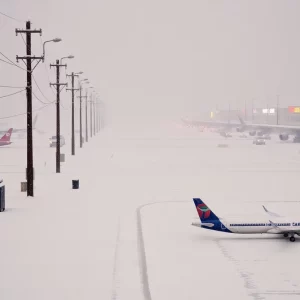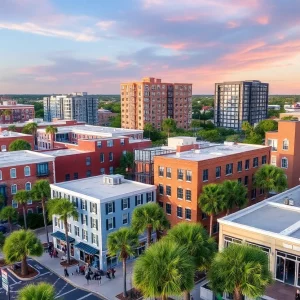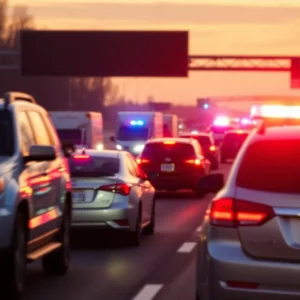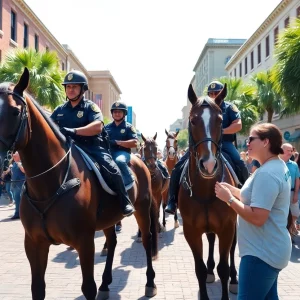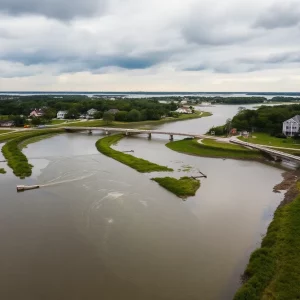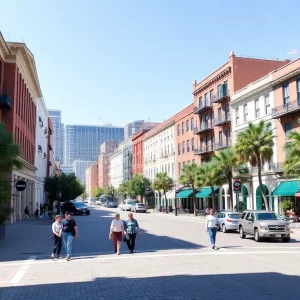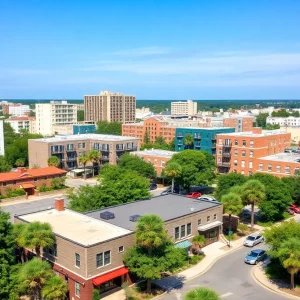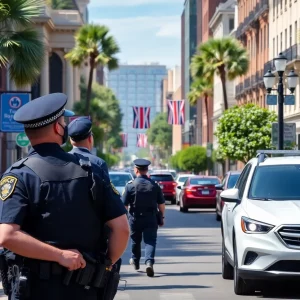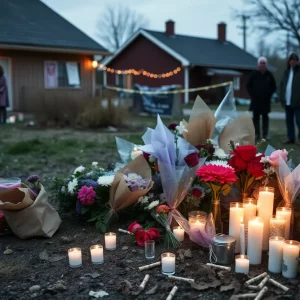Charleston Grapples with Deadly Police Pursuits and Calls for Reform
Charleston, SC – The roads of Charleston have recently become points of contention as two tragic police chases ended in fatal accidents, claiming the lives of four individuals. These incidents have sparked heated discussions around public safety and the protocols police follow during high-speed pursuits.
On the night of November 20, 2024, a Charleston County sheriff’s deputy clocked a vehicle speeding at an alarming 83 mph on U.S. Highway 17A, signaling the driver to pull over. Instead of complying, the driver chose a reckless path, weaving through traffic before ultimately crashing into a power pole. The unfortunate result? Twenty-four-year-old James Blevins from Summerville lost his life at the scene.
Another Heartbreaking Incident
Fast forward to just hours later, things took another grim turn. A chase involving a 2015 Jaguar resulted in a shocking crash along a busy road in Mount Pleasant. The chase escalated to speeds over 100 mph, ending with the vehicle lodged between trees. Among the three men in the vehicle, only one survived. Two young lives — 20-year-old Scott Tucker, who worked as a detention officer, and Dennis Bernard, also 20, were tragically lost. A third passenger, 19-year-old Jaden Geathers, died shortly after being rushed to the hospital.
These occurrences are more than just isolated incidents; they exemplify a growing concern regarding police pursuits in the area. Recent statistics indicate that while police pursuits resulting in fatalities are relatively rare, they still make up a significant 14 percent of fatal police chases statewide from 2018 to 2022.
Proposing Stricter Policies
Within the law enforcement community, voices are rising for reform. Some experts believe that tougher penalties for individuals evading police could potentially discourage dangerous chases. One such initiative, which aimed to introduce stricter rules on police chases, unfortunately, fizzled out before gaining traction in the legislature. A new session kicks off in January; there’s hope that a similar proposal might be revived.
Law enforcement training programs in South Carolina emphasize the need for strategy in high-stress situations. However, as noted by Lewis J. “Jackie” Swindler — director of the S.C. Criminal Justice Academy — the current training does not address the delicate balance officers must maintain regarding when to initiate a pursuit.
Rethinking Public Safety
The ongoing debate raises questions on how to ensure the public’s safety while allowing police to effectively do their jobs. Some policies, such as those in Charleston, dictate that officers must weigh the seriousness of the crime against the potential risks posed by a pursuit. Notably, police are granted flexibility in their response, sometimes even operating without sirens or flashing lights, depending on the situation they face.
Amid the overwhelming grief caused by these recent tragedies, community members are questioning whether enough attention is being paid to the safety of all involved — including innocent bystanders caught in the crossfire. The Charleston County Sheriff’s Office emphasizes the need for quick risk assessments, and deputies are reportedly able to terminate a pursuit if they deem it unsafe without worrying about disciplinary actions.
A Call to Action
As Charleston grapples with the impact of these deadly pursuits, many hope that meaningful discussions about policy reform will take center stage. The aim is clear: to balance law enforcement’s need to protect the community while ensuring that the lives of civilians and officers are not put in undue jeopardy during high-speed chases.
With a growing number of voices calling for legislative change, it’s becoming evident that the need for a robust dialogue on police accountability and public safety is more crucial now than ever. As the new legislative session approaches, many will be watching closely to see how these tragic events shape the future of law enforcement procedures in Charleston.
For the latest updates on this developing story, community members are encouraged to stay engaged and proactive as they hold local authorities accountable.





